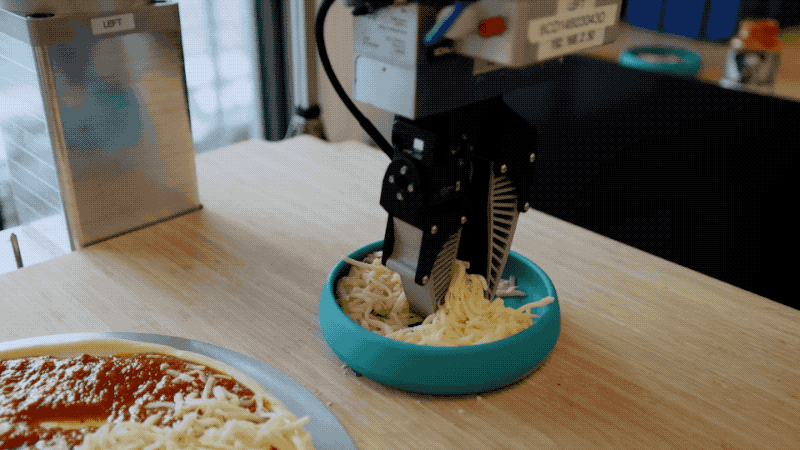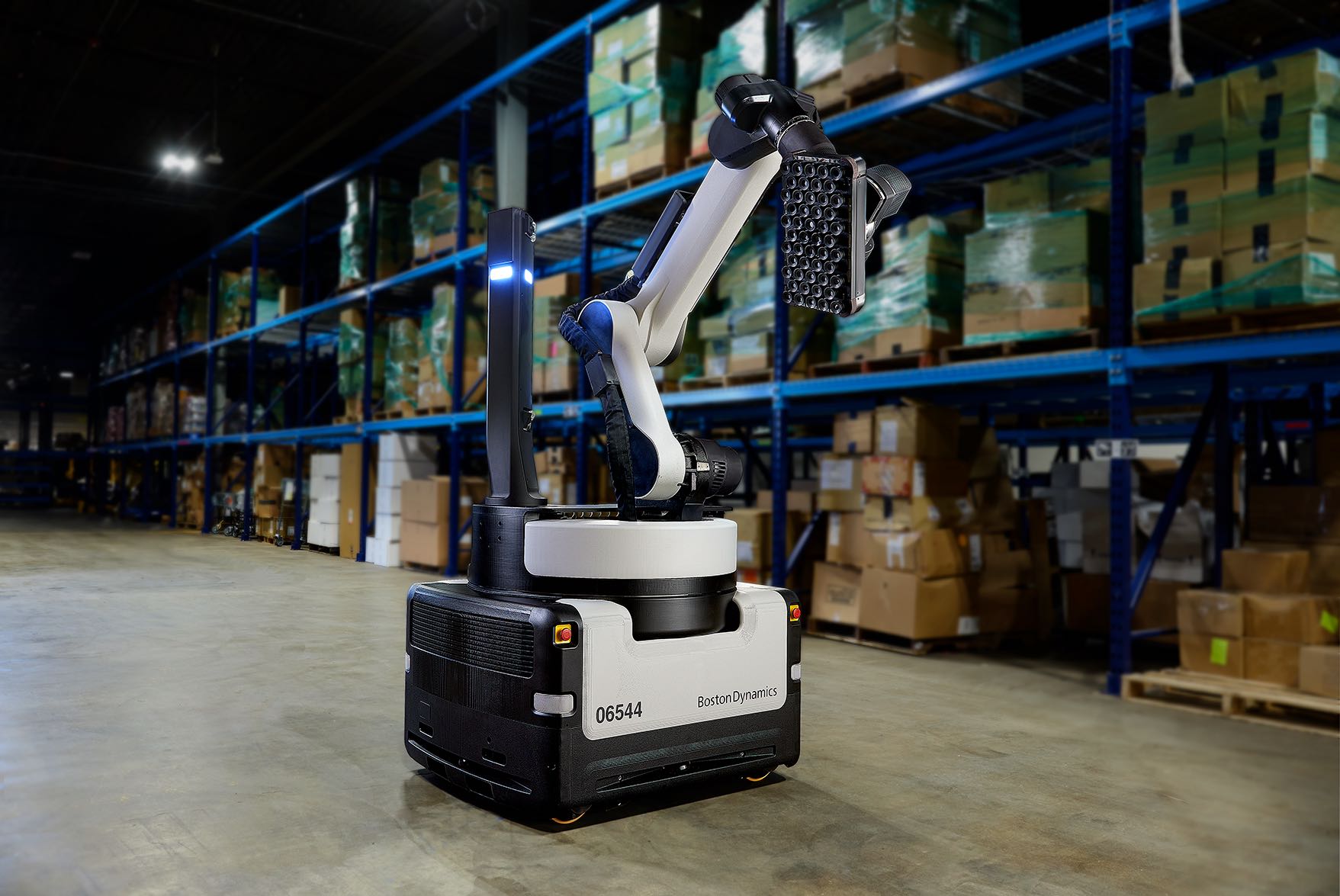If you’re lucky, once a year you get to put together a panel built on pure kismet. Pairing Gill Pratt with Marc Raibert was exactly that for me. The two go back several decades, to the salad days of MIT’s Leg Lab.
[A version of this story originally appeared in TechCrunch’s robotics newsletter, Actuator. Subscribe for free here.]
Raibert founded the lab at Carnegie Mellon University (CMU) in 1980, before moving operations to MIT. The team was focused on robot locomotion research that would pave the way for Boston Dynamics’ work.
“When we first got started, all robots that had legs were very slow moving, crab-like things that would hug the ground and then tentatively take a step and hope that things didn’t topple over and then move like a slow-moving spider,” says Raibert. “I was interested in how animals work, and I looked at that and said, ‘Wow, this is about as far from right as you can get.’ I went the other way to see if we can do something where the dynamics and the energy in the machine [were] part of the story, and springs and bouncing were part of the story. My lab worked on that. We built pogo stick robots.”
Raibert ran the lab for 15 years. A number of future robotics luminaries would make their way through the program over the course of its existence, including AI ethics professor Joanna Bryson, research scientist Jerry Pratt, Wobbleworks co-founder Peter Dilworth, artist Daniel Paluska, CSAIL professor/Toyota Research Institute (TRI) VP Russ Tedrake, UC Berkeley professor Ken Goldberg, Boston Dynamics CEO Rob Playter and Agility Robotics co-founder Jonathan Hurst, who was a visiting student from CMU one summer.
Raibert and Pratt first crossed paths when the latter was a student at MIT. Raibert would found Boston Dynamics in 1992, handing the Leg Lab keys over to Pratt three years later.
“Marc was an incredibly generous professor,” Pratt says of their early days. “One of the wonderful things about MIT at the time and Marc in particular is that I was this young kid, and both as a graduate student and then a young professor, he welcomed me. For a while, both of us were working in the Leg Lab at the same time, and Marc had done this extraordinary work on robots that run. I decided that maybe I would work on robots that walk. That’s how we intersected then, and then when he went off to form Boston Dynamics, he was very kind and basically gave me the lab and all the stuff that was there.”
Pratt remained in academia for the next two decades, transferring from MIT to Olin in 2001. Nine years later, he became a program manager at DARPA. It was there the two crossed paths yet again. Boston Dynamics designed Atlas for DARPA. The humanoid robot made its debut in 2013 and has since become a mainstay in robotics challenges.
Three years later, Pratt was named TRI’s CEO. Raibert continued as Boston Dynamics’ CEO until 2019, handing the reins over to longtime employee Rob Playter, who managed the company’s shift to more commercial pursuits. Last year, Raibert (who still serves as BD’s chairman) founded the Boston Dynamics AI Institute. The organization has a lot in common with TRI. Both are dedicated to pure research, with the backing of two major automakers (Toyota and Hyundai).
I recognize that “pure research” is a bit of a loaded term. The concept is certainly a hopeful one: finding a method that can sustain research outside of the pressures of academia and corporate R&D.

Asked whether there is pressure from Toyota to productize, Pratt says, “There actually is not, and I’m not saying that just to be nice. I think one of the great things about companies that have existed for long times is that this isn’t the first time that they’ve done R&D. Certainly most of the R&D budget inside of Toyota is spent figuring out how to make the next car or maybe the car five years from now. But there’s this notion — and I’m sure Hyundai shares this — that we’re at the once-in-a-century time for transformation in the car industry. Battery electric vehicles are much simpler to make than cars have been in the past — no engine, no transmission, etc. So, we’re going to have to compete in a much fiercer way in cars. But also, can we use the skills, the dreams and the hopes of the company to go beyond cars? TRI’s job is to actually think about [what’s] next. What’s next after cars, as well as some fancy stuff on cars.”
For TRI, much of the “what’s next” focuses on supporting aging populations. The organization invests a good portion of its resources to building out technology designed to help older people live more independently. That’s at the root of the research we shared from the institute last week. Noted senior research scientist Benjamin Burchfiel:
We’ve seen some big progress with the advent of [large language models], using them to impart this high level of cognitive intelligence into robots. If you have a robot that picks up a thing, now instead of having to specify an object, you can tell it to pick up the can of Coke. Or you can tell it to pick up the shiny object, or you can do the same thing and do it in French. That’s really great, but if you want a robot to plug in a USB device or pick up a tissue, those models just don’t work. They’re really useful, but they don’t solve that part of the problem. We’re focused on filling in that missing piece, and the thing we’re really excited about now is that we actually have a system and that the fundamentals are correct.
The Boston Dynamics AI Institute is still in its infancy, and therefore doesn’t have much in the way of public facing research to show just yet. It is, however, doing a lot of hiring. This week it announced that MIT’s Kate Darling will lead research around “ethics and societal impact of robotics and AI.” From the institute:
Darling’s team will explore immediate as well as long term questions on the implementation and use of robotics, impact on the workplace, infrastructure and other topics. The team will perform studies and experiments designed to generate data needed for others to make informed ethics and policy decisions, and will also develop a series of talks and workshops at the intersection of ethics, law, economics and robotics that will offer a platform for broad discussion.
“I’ve heard Gill say that making a car is taking small bits of metal and banging them up, welding them together and attaching them,” Raibert says. “That’s a little on the primitive side. Now we have software, robotics, AI and all that stuff, and the car companies need to embrace that. I think the leadership at Hyundai — the chairman visited me last week, and we’re in close touch with him and the people who work with him — think that getting into the 22nd century is an important thing to do and we’re getting started on it now.”

Pratt adds, “There’s actually this alignment that’s happening between cars and robotics, as well. Rod Brooks was the one who a few years ago said that modern cars are eldercare robots. I think that’s really true. You think about the amount of computers in them, the amount of software that’s in them. TRI has different divisions inside of it, one of which works on very advanced things in cars that is completely overlapping with some of the software and some of the concepts that we’re using in the robotics space.”
For its part, the Boston Dynamics AI Institute lists three key pillars of its research: intelligence, dexterity and mobility. That’s effectively making robots that are smarter, better at mobile manipulation and move more dynamically. Raibert admits that “Boston Dynamics AI Institute” might not be the most instructive name, both with regard to confusion between itself and Boston Dynamics the company, as well as a seeming focus on AI over robotics. A name change is apparently coming, but nothing has been decided just yet.































Comment